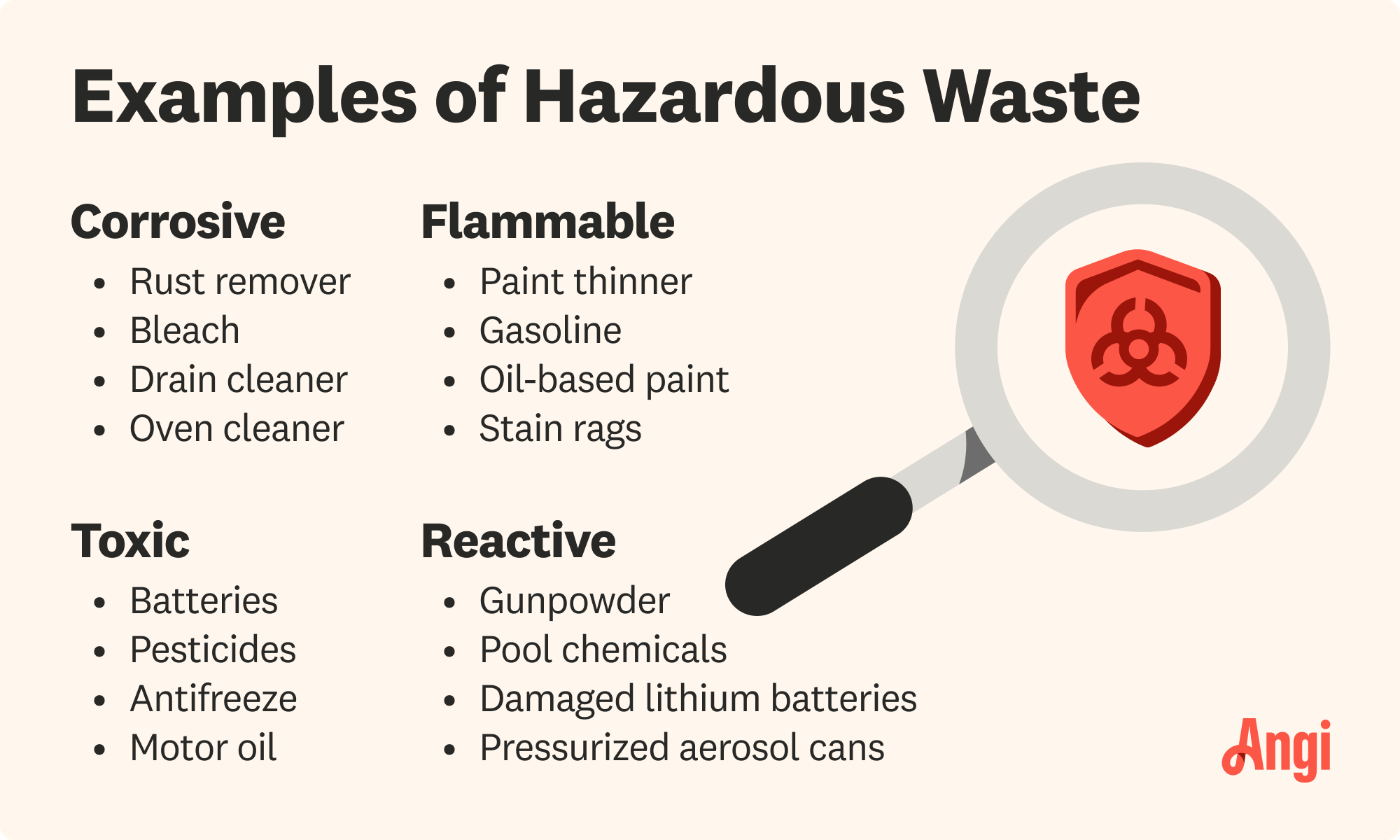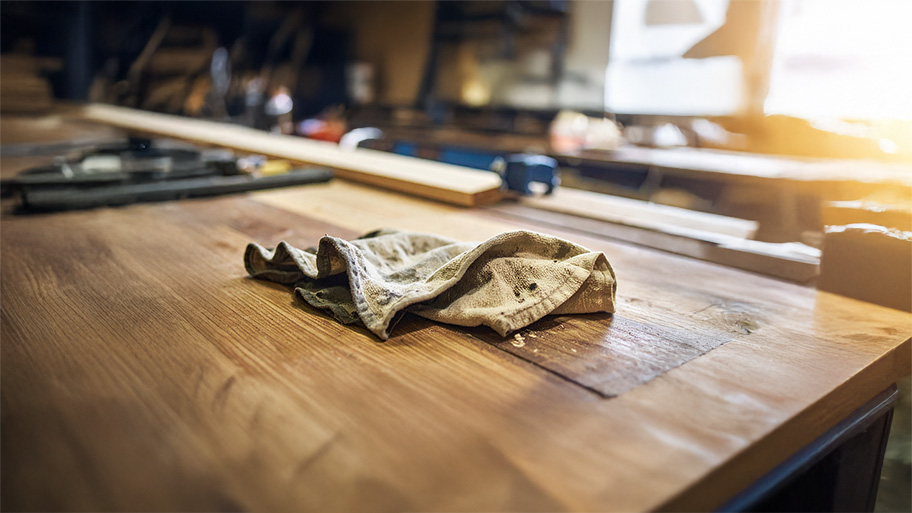
Get clear answers on oil tank removal costs, including average prices, key factors, and ways to save. Learn what impacts your project and how to budget.
Find out the best ways to get rid of your old bleach


Even if it’s expired, bleach is a powerful chemical disinfectant. Disposing of bleach safely is important to avoid potentially harming people, animals, and the environment. Where you live may have different codes, laws, and regulations regarding how to dispose of bleach. While there are tips below on ways to dispose of bleach, check with your local government or municipality first to ensure you’re following all the requirements.

Bleach is often used as a disinfectant, and the central chemical ingredient is sodium hypochlorite. According to WebMD, both the liquid and vapor forms of bleach can be harmful and toxic, irritating your eyes and mouth or even causing burns on skin that’s left unprotected.
According to Healthline, when bleach is mixed with other chemicals like ammonia or citrus cleaners, it creates a toxic gas that is harmful to humans and animals. Bleach can also harm plants, whether it comes into contact with leaves, stems, or roots. So, simply dumping bleach—diluted or undiluted—outside or down a drain is not a safe way to dispose of it. If you have several gallons of bleach and other waste to get rid of, you may want to check with a company to find out how much junk removal costs and if the disposal of bleach and other chemicals is included in the company’s services.
Yes, it expires. Bleach has about a six-month to one-year shelf life when it’s stored properly. According to Scripps Research Institute, open bleach, even when in its original container, begins to lose its effectiveness by about 20% every year.
If your bleach has not expired and is still good, consider storing it in a cabinet or on a shelf that’s well out of reach of children and pets. Ideally, the cabinet will be locked for added safety. Store the bleach container in a cool, dark place, avoiding places where it ends up in direct sunlight or can get very hot. And please check the cap to be sure it’s on tight to avoid any spills or leaks.

So you’re ready to get rid of that old bleach. Now what? As you know, bleach can be dangerous if disposed of improperly. Similar to disposing of old paint, following a few best practices will help keep your family and pets safe and take care of the environment.
Assuming it’s not expired, consider giving your unused, unwanted bleach to a friend, family member, or even a cleaning service. This saves them from having to go out and buy more and you get rid of the bleach about as easily and responsibly as possible.
Check around your area for any facilities that accept hazardous household chemicals. Many waste collection companies or municipalities host special events for people to bring these kinds of materials like old paint or chemicals like bleach for safe disposal.
It’s not advised to place hazardous waste materials in your dumpster without first consulting your dumpster rental company. If these items make their way to the landfill, they (in most circumstances) will be returned to you, and you will face a fine of up to $500.
Pouring uncut bleach down the drain is not advised. However, you can dilute the bleach, adding about 1 gallon of water per ⅓ cup of bleach, and then carefully pour it down the drain. Even though it’s diluted, be careful to pour slowly to avoid any splashes onto your clothes, exposed skin, or face. After you pour it down the drain, run cold water for a minute or so.
If you only have a small amount of bleach (½ cup to 1 cup) to dispose of, carefully pour about ¼ cup at a time into the toilet and flush for each ¼ cup. It may be easier to just dilute it and pour it down the sink drain.

You know by now that bleach can be harmful to people, animals, and plants, and what you don’t do can be as important as what you do. So here are a couple of other tips for handling bleach, especially during the disposal process.
Do NOT mix bleach with anything other than water! Bleach has a chlorine derivative and other chemicals in it that can react violently when mixed with chemicals or substances other than water. These reactions can be explosive and create dangerous fumes.
Make sure to turn on an exhaust fan or open a window so that the area is well-ventilated, as bleach vapors can be strong and irritate your airways and lungs.
Wear a respirator mask, eye protection, and gloves to avoid breathing any bleach vapors or getting any bleach in your eyes or on your skin.
Wear clothes you don’t mind getting ruined. If bleach splashes onto your clothes, you’ll end up with white spots wherever it lands.
Waste removal costs an average of $250, depending on the type of waste and the disposal method. Bleach is considered hazardous waste, which costs more to remove safely, so budget up to $300. When disposing of old furniture or construction debris, it may be worthwhile to rent a dumpster, especially if you have a large volume of junk.
As long as you know how to safely dispose of bleach and take the appropriate precautions, you shouldn’t have an issue doing it yourself. That being said, if you feel more comfortable hiring a pro, you can take it to a hazardous waste facility or call a garbage removal company to see if they offer hazardous waste removal services.
From average costs to expert advice, get all the answers you need to get your job done.

Get clear answers on oil tank removal costs, including average prices, key factors, and ways to save. Learn what impacts your project and how to budget.

Mattresses are considered hazardous waste, so you’ll likely have to pay disposal fees. Use this guide on mattress removal costs to see what your total will be.

Need to get rid of paint, solvents, or other chemicals? Use this guide on hazardous waste disposal costs to see what professional removal will cost.

Discover how to dispose of rocks from your yard responsibly. Our expert guide unearths what you need to know before DIYing or hiring a pro.

Used stain rags can be flammable and pose safety risks. Learn how to dispose of stain rags safely and responsibly.

Grills are bulky, which means your regular sanitation schedule likely won’t account for disposal. Learn how to dispose of a grill properly and affordably.